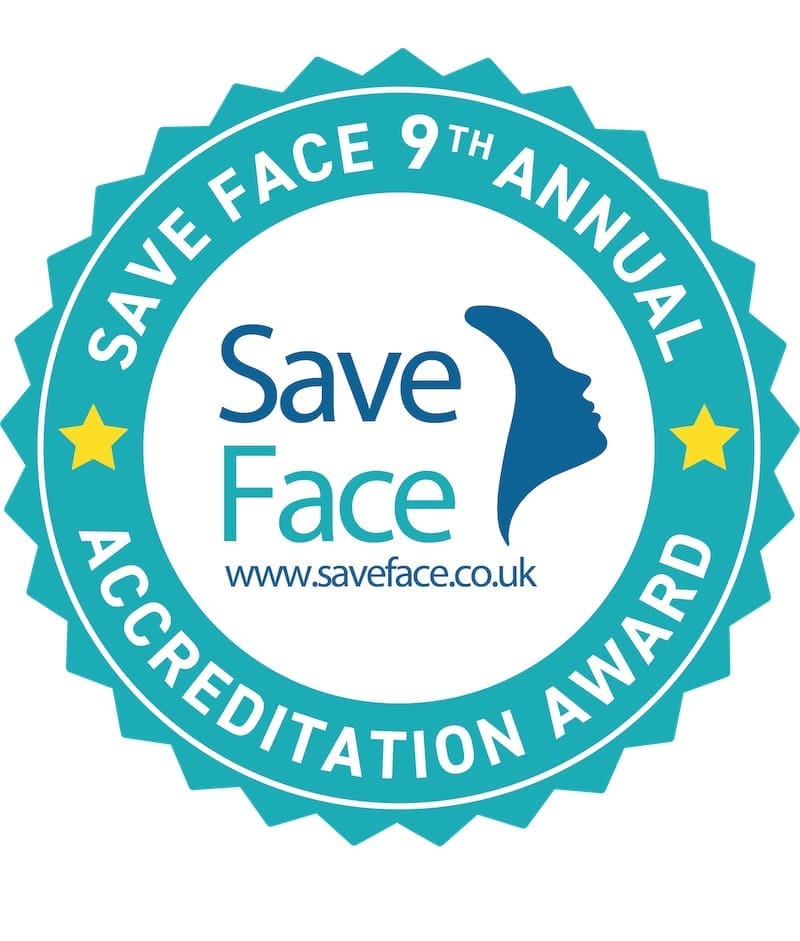The list of potential “superfoods” is very long, but here are some of my favourites. I have largely restricted the list to foods which have at least some evidence for their beneficial claims, although an absence of evidence does not mean there is no potential benefit; it may be that the studies have simply not been carried out.

Superfood Index


Asparagus
This is a good source of vitamins A, C, E and K and also folate and fibre. As I love to talk about sugar and insulin, I should mention that this vegetable contains the trace mineral chromium, which aids glucose transport from the blood into cells. Use waterless cooking methods such as roasting, grilling or stir-frying your asparagus to preserve the nutritional content and its benefits.
Avocado
With more potassium than bananas, avocados are also a great multivitamin provider, rich in vitamins C, B5, B6 and E. They also provide 20% of your daily folate requirement. 15% of an avocado is healthy fats and in fact, they have been shown to reduce bad fat levels ie LDL and Triglycerides. I add avocado to salads and smoothies.
Beetroot
Beetroot is a good source of iron and folate (naturally occuring folic acid). It also contains nitrates, betaine, magnesium and other antioxidants (notably betacyanin). Beetroot is high in nitrates which explains its ability to lower blood pressure. There is also evidence to suggest that it help improve exercise performance and lower the risk of developing dementia.
Blueberries
These make a regular appearance in my daily nutritional fresh smoothie. Blueberries are a fantastic choice as one of your five portions of fruit and vegetables a day. They are low in calories and high in nutrients, including phenolic compounds with an antioxidant capacity significantly higher than vitamins C or E. Great to combine with pineapple in a smoothie for synergistic benefits.
Broccoli
“Fight Cancer”: Broccoli is a member of the family of cruciferous vegetables along with cauliflower, bok choy and cabbage. These all contain compounds that are linked to improving the body’s ability to impede the growth of cancer cells. This was supported by the World Cancer Research Fund following an evidence review in 2007. Broccoli has also been shown to help in lowering cholesterol. Broccoli is also a good source of vitamin C and folate (naturally occurring folic acid). It also contains vitamins A and K, calcium, fibre, beta-carotene and other antioxidants, notably indole-3-carbinol and sulforaphane. The latter was found – in a lab study in 2008 – to prevent the damage to small blood vessels caused by high blood sugar (which can happen if you have diabetes).
Cantaloupe
A great provider of Beta-carotene, cantaloupe is a refreshing dessert option or addition to a salad or smoothie. Diets rich in beta-carotene have been shown to reduce risk of asthma and prostate cancer. It is also a good hydrator and high in potassium. If you have a tendency to constipation, fibre is also something cantaloupe will add to your diet. Sleep, muscle movement, learning and memory may be promoted by the choline content. Lastly, it is a good source of vitamin A which helps with maintaining good hair and skin health.
Eggs
In years past – based on evidence at the time – I limited myself to 2 eggs per week through fear of raising my cholesterol! Now the tables have turned and we can apparently enjoy eggs more often and therefore maximise on their health benefits. Rich in high-quality proteins they are also a good meat alternative for vegetarians, as B12 and folate are amongst the long list of vitamins and minerals in an egg. I have recently swapped hen and chicken eggs for duck eggs. Double the protein and higher levels of almost all the other nutrients.
Flax Seeds
Another ‘super-seed’, providing 4g of protein and 11g of fibre with each tablespoon. This is soluble fibre which is what you need if you have slower bowels. Try grinding to a powder and adding this to your cereal. These seeds are also rich in Omega-3s and make you feel full for longer. One of the best providers of lignans, evidence suggests protective benefits against breast, colon and prostate cancer.
Garlic & Onions
Garlic is a superb booster of our body’s immune system and like onions, can reduce blood pressure. Always use fresh garlic and help ward off those bugs we all pass around to each other! Onions are rich in the anti-oxidant quercetin, which helps to protect and strengthen damaged cells. They also reduce risk of blood clots and increase good cholesterol levels. Just get a good mouthwash.
Goji Berries
Also known as wolfberries, these contain all 18 amino acids as well as mega doses of vitamin A, B1, B2, B6 and vitamin E, and, gram for gram they are packed with more iron than spinach and more vitamin C than oranges.
Grapefruit
Grapefruit is one of the best anti-oxidant providers. One of these is lycopene (only in red or pink grapefruit; not white), which has been shown to have anti-tumour activity. It is also abundant in vitamin C with 100g providing almost a half of your RDI. Grapefruit has a low GI value as well.
Green Tea
Cholesterol: There is increasing evidence that both green and black tea are beneficial for cardiovascular disease prevention. A good quality review from 2013 of 11 studies involving 821 people found that daily consumption of green and black tea (as a drink or a capsule) could help lower cholesterol and blood pressure thanks to tea and its catechins. The authors of the review caution that most of the trials were short term and more good quality long-term trials are needed to back up their findings.
Herbs & Spices
There are too many wonderful spices to mention individually here. In general, they are very rich in anti-oxidants and many have anti-inflammatory properties. Try to use fresh herbs whenever possible and spices in Ethnic food shops tend to be fresher. This will not only influence the taste of your meal but also the level of nutritional benefit. Some of my top listers are cinnamon, turmeric, oregano, ginger, cloves, rosemary and garlic. However, they pretty much all have benefits!
Nuts
Nuts are a good provider of Omega-3 fatty acids, protein, vitamins E and B-complex, minerals and fibre. They are also an excellent source of monosaturated fatty acids which help lower “bad” cholesterol. They keep you full and are a good choice of snack. Obviously fat content does not to be considered. Some of the best nuts to go for, are cashews, almonds (technically a seed), pistachios and walnuts.
Organic Raw Apple Cider Vinegar
Numerous animal and human studies have shown this vinegar to increase insulin sensitivity and lower sugar levels after meals. For me, this is a significant benefit not just for Type 2 diabetics but everyone. If you cannot avoid sandwiches for lunch but hate the afternoon slump you get, try and incorporate some of this vinegar to your meal (it reduces blood sugar by 34% when eating 50g of white bread). It also increases feelings of satiety, helping with weight loss. LDL and triglycerides have also shown to be lowered by adding this vinegar to your diet.
Pineapple
Rich in the enzyme bromelain, pineapple is excellent for gut health, which in turn is essential for overall good health. Think of this as a gut lining cleaner; I put it into every smoothie I make. My top tip is to cut an entire pineapple – when fresh – into small pieces and stick these in the freezer. Then use as required straight into your blender. No ice needed either! Work synergistically with blueberries.
Pine Nuts
I have mentioned these separately as pine nuts do not get much of a mention, yet they packed with goodness. Aside from being a key ingredient of pesto, these nuts can be used in a variety of recipes and indeed, eaten raw like other nuts. As well as the benefits listed above (see Nuts), pine nuts are rich in vitamin C and D and iron. They also contain pinoleic acid which makes you feel full, so add these in to curb your appetite.
Pulses
Pulses are edible seeds that grow in a pod and include beans, lentils and peas. These are a great, low-fat, cholesterol-free source of protein, B vitamins, fibre, iron and potassium. Aside from Baked Beans and peas, pulses do not feature highly in the average British diet, which is a real shame considering all they provide. This filling alternative (or adjunct) to meat, can be prepared in so many ways that even the most fussiest of palates will want seconds. I grew up eating an Indian diet full of pulses, with each dish tasting quite different to the next. Google some Gujarati recipes if you are interested in reproducing some of these tasty dishes! Of course, there are many cuisines that feature delicious recipes using pulses.
Pumpkin Seeds
As if the zinc, magnesium and Omega-3s were not enough, I love the suggestion that these seeds can promote restful sleep due to the amino acid called tryptophan. The body converts this to serotonin (our “happy” chemical) which in turn is converted to melatonin (our natural sleep hormone). Try a handful of seeds with a small piece of low GI fruit, a few hours before bedtime. I actually add pumpkin seeds to any smoothie I make.
Quinoa
Pronounced KEEN-wah, this is actually a gluten-free seed. It is a complete protein, containing all the amino acids, as well as being very nutrient rich. These include phytonutrients which have been shown to have anti-inflammatory properties. Inflammation in the body has been linked to many diseases including cancer. Browse the web to find out how ways you can incorporate quinoa into your diet.
Spinach
This has to be one of my favourite superfoods. Spinach is a low calorie, fat-free, sugar-free green, abundant in vitamins, minerals, protein, fibre and omega-3s. Spinach is also loaded with flavanoids which are powerful anti-oxidants. These act as anti-cancer agents as well as helping prevent infections and other illnesses. Highly versatile; spinach always features in my smoothies (trust me and try it!), salads (try in place of lettuce), stir-fries and many curries.
Strawberries
Recent research shows that strawberries apparently protect against a plethora of diseases – from cancer to Alzheimer’s and diabetes. When it comes to diabetes, fisetin, a flavonoid abundantly found in strawberries, not only lessens complications of the disease but also protects against some nerve system disorders. Strawberries are a rich source of vitamin C and folate and also demonstrate an anti-inflammatory capability in the body. All-in-all, another of our most favoured superfoods.
Tomatoes
Tomatoes are good for your hair and skin, can reduce your chances of developing colorectal, stomach and prostate cancer, help reduce damage from smoking and good for the eyes, heart and kidneys. Need I say more?
 Close
Close



































































